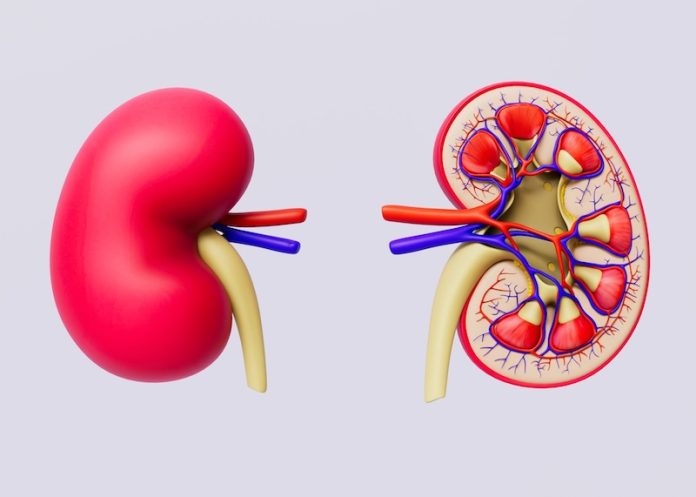
An international research team led by Osaka University has discovered a promising way to help doctors predict and possibly prevent heart failure. Their study shows that by closely watching two key markers of kidney health, doctors may be able to spot people who are more likely to develop heart problems in the future.
This is important news, because about 1 in 5 people will experience heart failure at some point in their lives. And while it’s well known that poor kidney health increases the risk of heart failure, this study offers a clearer picture of how changes in kidney function over time could act as an early warning sign.
The researchers, including Dr. Ryoto Sakaniwa and Dr. Jasper Tromp, studied the health records of nearly 7,000 peopleover a period of 11 years. They focused on two common kidney markers: urinary albumin excretion (UAE), which shows whether protein is leaking into the urine, and serum creatinine, a measure of how well the kidneys are filtering waste from the blood.
What they found was striking. People who consistently had high levels of these markers were much more likely to develop heart failure or die from any cause. These individuals were usually older men and often had other health issues like diabetes or a history of heart attacks.
According to Dr. Tromp, the results were “very clear”: long-term kidney problems can be a powerful signal of future heart trouble. And Dr. Sakaniwa emphasized that this shows just how connected the heart and kidneys really are. “Reducing these renal markers could help prevent heart failure,” he said.
This finding could help doctors take action earlier. By checking for rising levels of UAE and serum creatinine during regular check-ups—especially in people with known risk factors—doctors might be able to offer treatment or lifestyle changes before the heart gets damaged.
The research team hopes their findings will be confirmed in future studies involving different populations around the world. If proven, this approach could become a standard part of preventive heart care—just like checking blood pressure or cholesterol.
With heart failure affecting millions of people globally, being able to predict and prevent it using routine kidney tests would be a major step forward in public health.
The study was published in the European Journal of Heart Failure.
If you care about kidney health, please read studies about how to protect your kidneys from diabetes, and drinking coffee could help reduce risk of kidney injury.
For more information about kidney health, please see recent studies about foods that may prevent recurrence of kidney stones, and eating nuts linked to lower risk of chronic kidney disease and death.
Copyright © 2025 Knowridge Science Report. All rights reserved.



